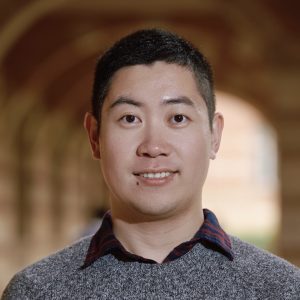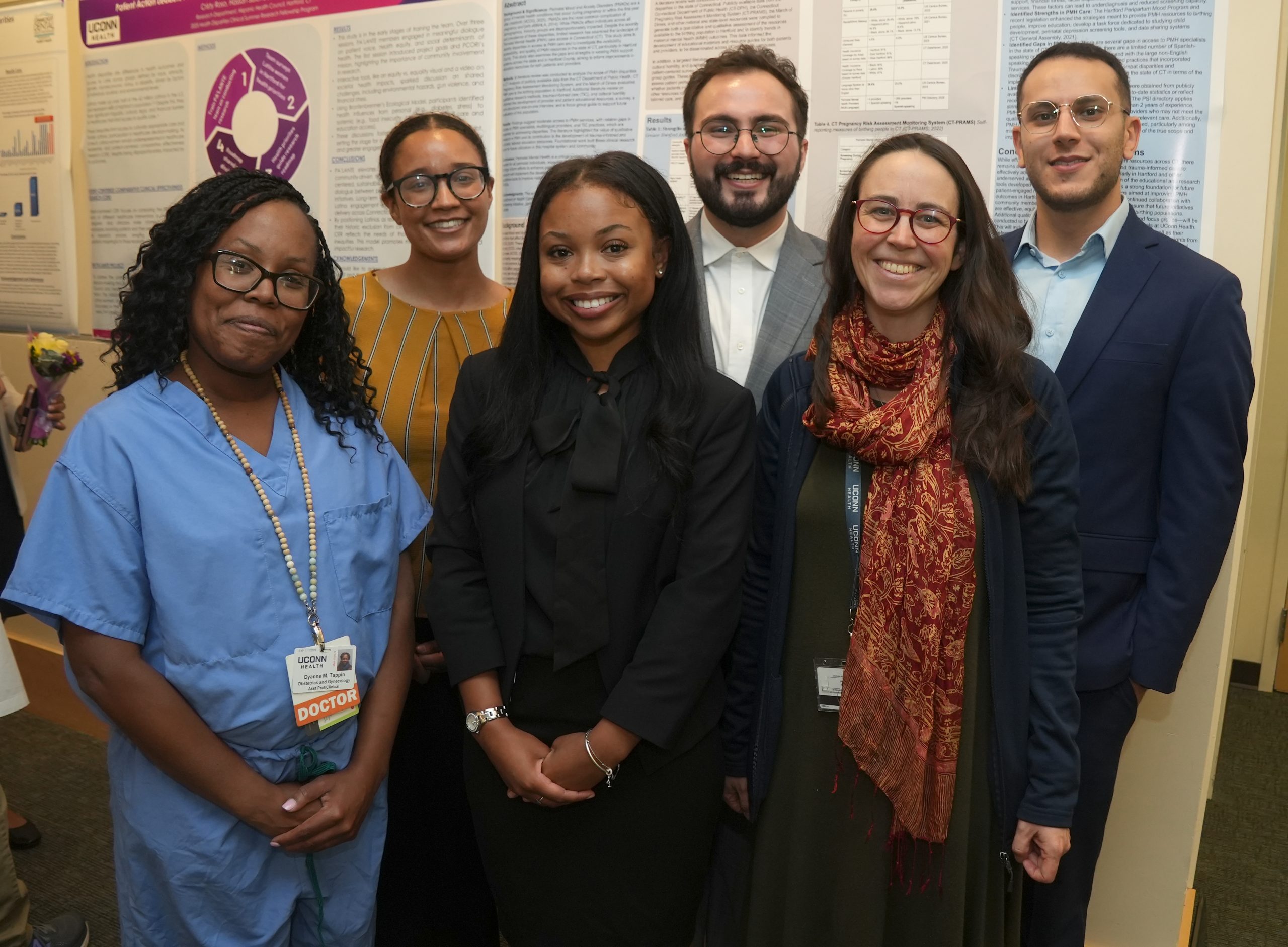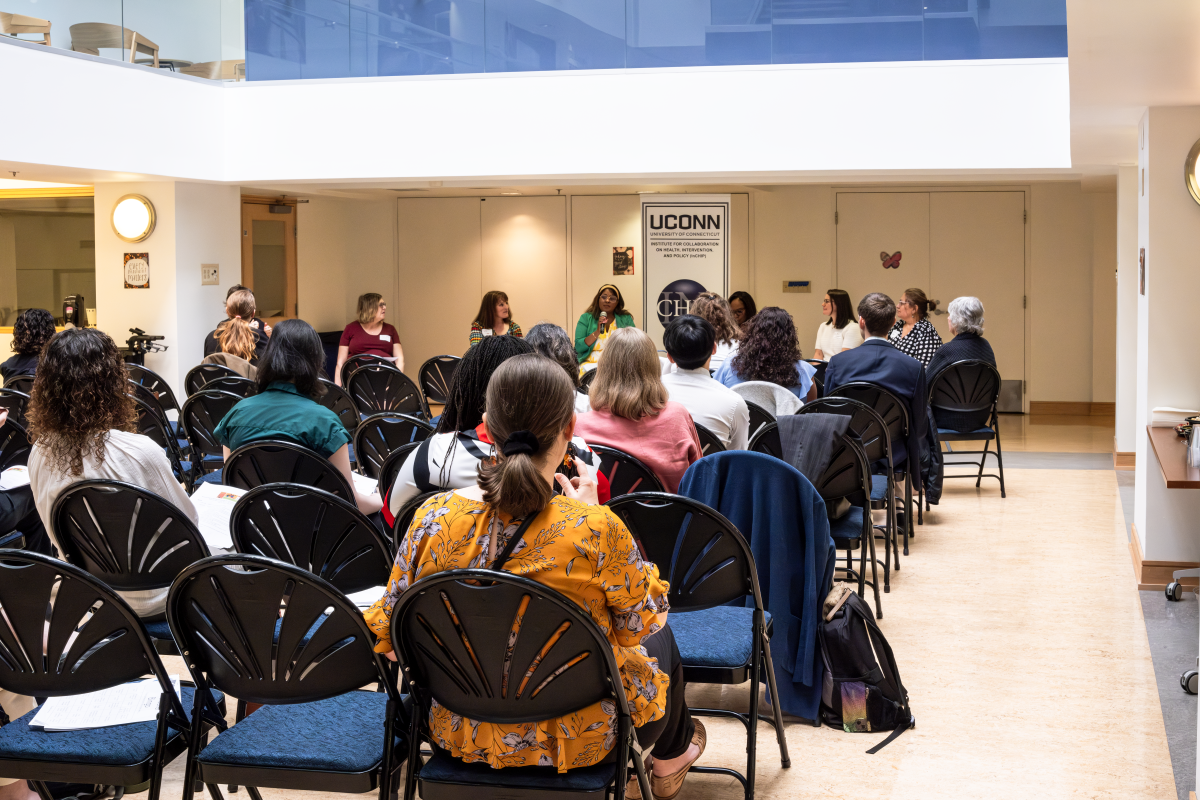Social Work Professor Focused on HIV, Intimate Partner Violence Research Brings New Perspective
Even though Chenglin Hong didn’t grow up locally and came to UConn via Beijing, Seattle, and Los Angeles, students in his classes might have more in common with him than they realize.
“I grew up in a very rural area in northeast China,” he says. “Neither of my parents went to middle school, so I had to navigate the education system and academia by myself. UConn has a very diverse student body. Many are from underserved communities or low-income families, and quite a few also are first-generation students.”

It’s a shared experience that Hong believes will help him relate to those he’s mentoring as one of the newest faculty members in the UConn School of Social Work. He also thinks that even though his position as assistant professor is steeped in research – and some students might find that intimidating – together, they can work in tandem.
“The majority of students will work as clinicians and practitioners, either as psychotherapists or case managers,” he says. “It’s important for them to know, though, that research and clinical practice are connected. Their experiences will inform my research, and my research will inform the way they deliver services.”
Hong describes himself as a global health scholar, one who started his career as a medical social worker in China and went on to get his Master of Social Work and Master of Public Health from the University of Washington and Ph.D. from UCLA.
And what he studies falls under a self-described “big umbrella.”
Right now, he’s considering the relationship between intimate partner violence among gay and bisexual men and an increased risk of HIV and sexually transmitted infections, an understudied area, he says, even though research has shown the prevalence of intimate partner violence among this group is similar or higher than among heterosexual counterparts.
Hong says his previous research found that as the prevalence of violence rises among gay and bisexual men, so too does the risk of mental health disorders, substance use, and HIV and STIs. He hopes to take this research a step further and look at how technology-based interventions, like eHealth and mHealth, might fit in.
“My work considers the intersection of social work, public health, psychology, and implementation science to see how I can utilize those interdisciplinary approaches to address the health issues this population faces,” Hong says.
“I came from a culture where sexual and gender identity are highly stigmatized and people don’t seek care after receiving an HIV diagnosis or an STI diagnosis,” he continues. “That really shaped my research. I want the knowledge I generate to inform practice and policy. I want to be a part of optimizing the standard of services we have and designing new ways to help individuals access health care.”
The health system in China is vastly different than the United States, Hong notes, explaining that social workers’ primary task in working with those who’ve been diagnosed with HIV is to connect people with medical services, things like getting and taking medications and showing up for follow-up appointments.
In the U.S., Hong says, supporting one’s medical care isn’t necessarily the focus. There’s already a standard of care and treatment thanks to antiretroviral therapy that offers a life expectancy much the same as the general population.
“We’re not only talking about physical health in the U.S., we’re also talking about mental health and social well-being,” he says, adding that his work in California with Black sexual minority men living with HIV included a team of professionals, from medical clinicians to lawyers. “That is really different, and I appreciate that approach because physical health is just one component of the overall well-being of individuals.”
As he begins to establish his research lab at UConn, Hong admits he misses China, his family, and the community he left behind. They’re always in his heart, he says, and have profoundly impacted the way he looks at the world and how he approaches his work.
“I’m half Korean, half Chinese,” Hong says. “The U.S. is a multicultural society with people from different backgrounds and different cultures. My own experience helps me see the health disparities and think about the best approach for us as researchers to design interventions and services to address societal problems.”
Latest UConn Today
- Incoming UConn Medical Students Get Hands-On Summer Research ExperienceFor the first time the Health Career Opportunities Program of UConn Health offered matriculating UConn medical students summer research opportunities.
- Partnering with Communities to Improve HealthInCHIP’s Community Engagement Research Core’s latest networking event offers insights for successful community research partnerships
- Study Highlights Higher Rates, Risk Factors for Non-Fatal OverdosesA new opioid overdose study has identified several key risk factors associated with non-fatal overdoses drawing from a sample of people who use opioids in New Haven
- Archiving for Justice, Truth, and Memory: Unpacking the Baggage of What Went BeforeReflections on the importance of the newest addition to UConn’s ICTY Digital Archives, the Srebrenica Genocide Archives Collection.
- Multiple Sclerosis Patient Sees Bright FutureFrom unheard to understood
- UConn AUKUS Scholars Explore Undersea Vehicle Technology, International Collaborations in AustraliaFive College of Engineering students studied systems thinking and interdisciplinary teamwork essential in modern undersea vehicle development













